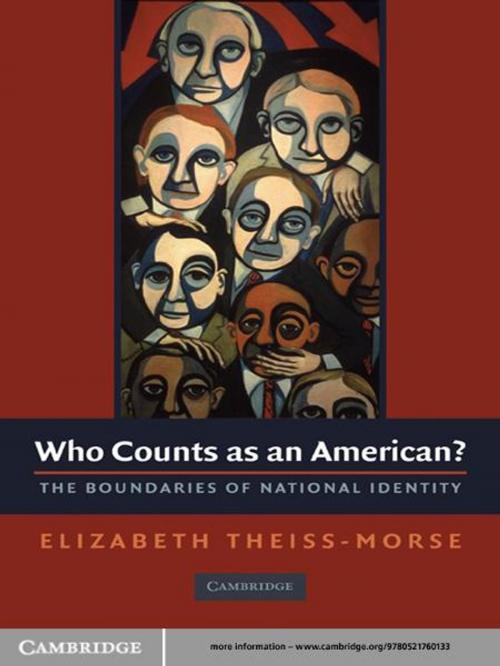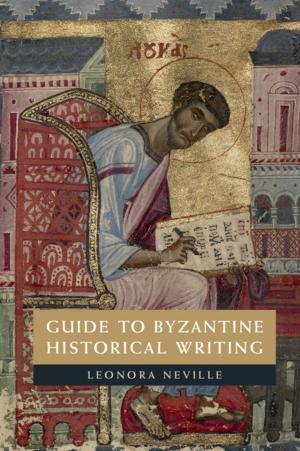Who Counts as an American?
The Boundaries of National Identity
Nonfiction, Social & Cultural Studies, Political Science, Government, Social Science| Author: | Elizabeth Theiss-Morse | ISBN: | 9780511847363 |
| Publisher: | Cambridge University Press | Publication: | July 27, 2009 |
| Imprint: | Cambridge University Press | Language: | English |
| Author: | Elizabeth Theiss-Morse |
| ISBN: | 9780511847363 |
| Publisher: | Cambridge University Press |
| Publication: | July 27, 2009 |
| Imprint: | Cambridge University Press |
| Language: | English |
Why is national identity such a potent force in people's lives? And is the force positive or negative? In this thoughtful and provocative book, Elizabeth Theiss-Morse develops a social theory of national identity and uses a national survey, focus groups, and experiments to answer these important questions in the American context. Her results show that the combination of group commitment and the setting of exclusive boundaries on the national group affects how people behave toward their fellow Americans. Strong identifiers care a great deal about their national group. They want to help and to be loyal to their fellow Americans. By limiting who counts as an American, though, these strong identifiers place serious limits on who benefits from their pro-group behavior. Help and loyalty are offered only to 'true Americans,' not Americans who do not count and who are pushed to the periphery of the national group.
Why is national identity such a potent force in people's lives? And is the force positive or negative? In this thoughtful and provocative book, Elizabeth Theiss-Morse develops a social theory of national identity and uses a national survey, focus groups, and experiments to answer these important questions in the American context. Her results show that the combination of group commitment and the setting of exclusive boundaries on the national group affects how people behave toward their fellow Americans. Strong identifiers care a great deal about their national group. They want to help and to be loyal to their fellow Americans. By limiting who counts as an American, though, these strong identifiers place serious limits on who benefits from their pro-group behavior. Help and loyalty are offered only to 'true Americans,' not Americans who do not count and who are pushed to the periphery of the national group.















